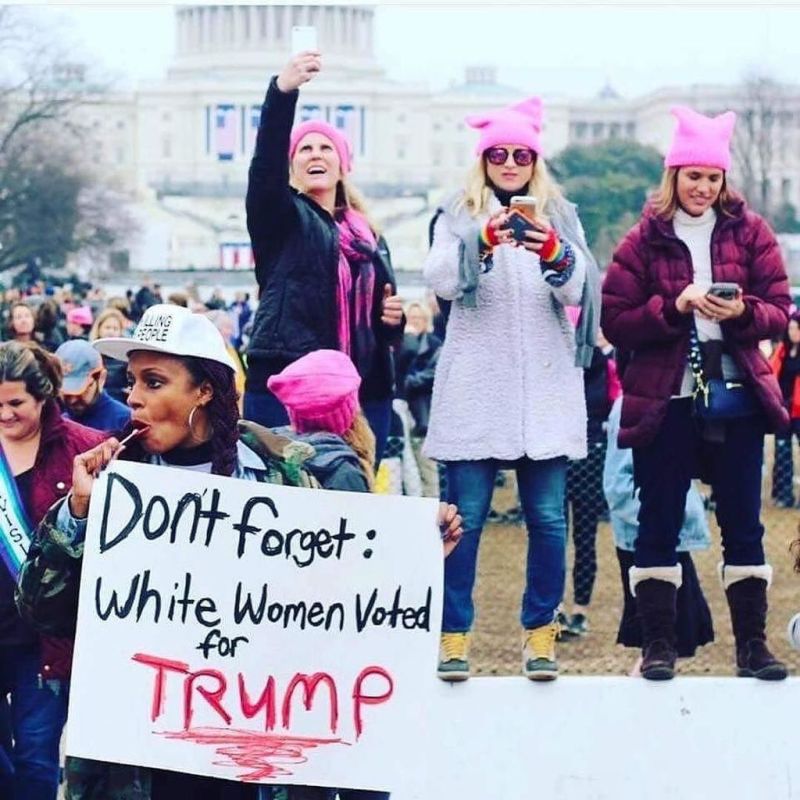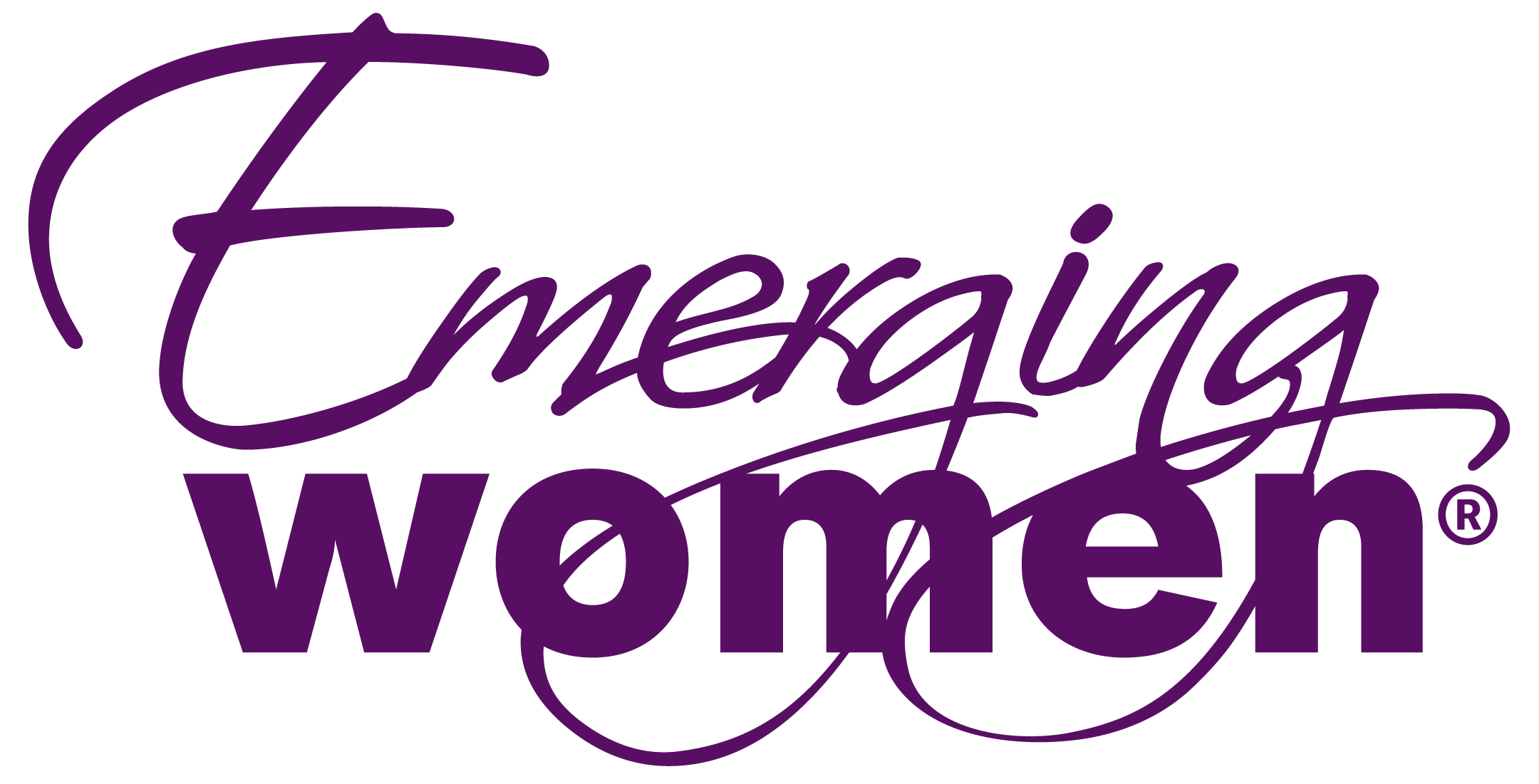In the days following the Women’s March I have encountered blogs and literature expressing ways in which people have felt marginalized by the mission of the Women’s March. One image that struck me was one of a black woman, Angela Peoples, holding a sign that read, “Don’t forget White women voted for Trump.” Standing in the background of the photo are three white women in pink “pussy-hats” on their phones, smiling and posing for a selfie.

This photo is an explicit visual representation of a deep racial divide that is still very much present between women of color and white women, a distinction made unmistakably clear by the 2016 presidential election. More than 53% of white women voted for Donald, while approximately 94% of black women and 69% of latina women voted for Hillary.
There are cracks in America’s feminist movement. We are not as united as we believe.
My post’s purpose is not to examine why this drastic difference in voting occurred. Rather, I am here to address my own unanswered question:
Where is my place in all of this? Where is a white, cisgender, straight, middle class, able-bodied, privileged woman most helpful, or more importantly, least helpful or possibly even damaging for a movement whose main purpose is to achieve inclusive equality for all?
When I am uneducated about a topic, or fearful of looking ignorant when opening my mouth, my default is to read. This is a great tool. Yet it can also open the door for passivity and cowardice. By only reading, I give myself permission, in a way, to gain knowledge while remaining sheltered. I can read all about intersectional feminism, how to be a better activist, how to be a better ally, but if I don’t get out there and talk to someone about it, if I don’t get out there and do something about it, then what the heck is the point?
Here’s the truth about all of this: I am afraid. I am afraid of saying the wrong thing. I am afraid of insulting someone or coming off as callous. I am afraid of being called a racist. But guess what? My reluctance to take a stance and engage in the discourse surrounding the intersection of gender and race only perpetuates racism, my inherent racism as a white person (and if you’re white, yours as well). I benefit from systemic racism. I perpetuate racism in ways that are invisible to me. I allow it to continue living for the simple fact that I have the luxury of never having to think about it.
My hesitation to enter the conversation doesn’t keep me “safe” from being called ignorant or hurting someone’s feelings. No, it keeps me docile and reinforces my white privilege to not have to participate.
If you haven’t yet, I strongly encourage you to read Saroful’s How to survive in intersectional feminist spaces 101. The very first aspect the author addresses is how we will all be corrected at some point or another, and that is OK! And when you mess up, which we all will, guess what you say? “I’m sorry. I didn’t know. I’ll do better next time.” Wow. That was a little more straightforward than I thought it was going to be.
No one can know everything and no one expects me to know everything, but if I don’t ever mess up because I never open my mouth, then I will never learn. Saroful goes on to discuss a seriously helpful list of ways to be a good listener, an effective learner, and an impactful activist.
One of the key points I found helpful was:
“If it’s not about you, don’t make it about you. If it is about you, do better.” – Saroful
In my attempt to be an activist, I will eventually be confronted with a blanket statement about racism such as white women are racist. What I am coming to realize is that all white humans are inherently racist (see above), whether or not we are willing to admit it. But if we insist that these statements don’t apply to us personally (Saroful calls this “not me! I’m a good person!”) we hijack the conversation and erase the opportunity to discuss the real issue at hand. And by playing the part of the “innocent bystander,” educating myself, but not engaging with the issue, I am a detriment to progress. I am not speaking truth to power.
I have spent the last week reading and I decided it is time to move. I need to leave my safe place, the one inside my little head. In Saroful’s follow-up article, So you think you know a thing: feministing 201, she notes that in almost every circumstance, experience will outweigh education. Anything that has ever been written has invariably been lived by someone else. In other words, educate yourself with the voices of people from the relevant community. Widen your lens of perception.
The moral of my story is that I have to engage, to listen, to learn, to know I’ll mess up and to always realize that I have the capacity to do better; we all have that potential. I will mess up, I will fall down, and I will be hurt. The beauty of it is: I will grow. It is not a marginalized group’s responsibility to come to me asking for help, to “teach” me what I should know, or to coddle my feelings of white fragility. It is MY job to change and to work hard as hell in my discomfort. It is my job to figure out by asking how I can be a better ally, not by stating that I am one. It is the voices of marginalized communities that must be at the center of the conversation, not mine, or any white person’s for that matter. It is their voices that need to be lifted and magnified – again, not mine.
I now have somewhere to start. It is my job to ask where I can be helpful, not tell. It is my job to support the uplifting of POC’s voices, not my own voice. I feel optimistic about our potential, collectively, to be the change we wish to see in the world. And as Gandhi once said, this is a damn good place to start.
Note from Emerging Women: Kristen Neff’s Self-Compassion Break is a tremendously helpful practice when we’re doing tough inner-work that is likely to bring up uncomfortable feelings. We made a handy pdf for you – take a look:

